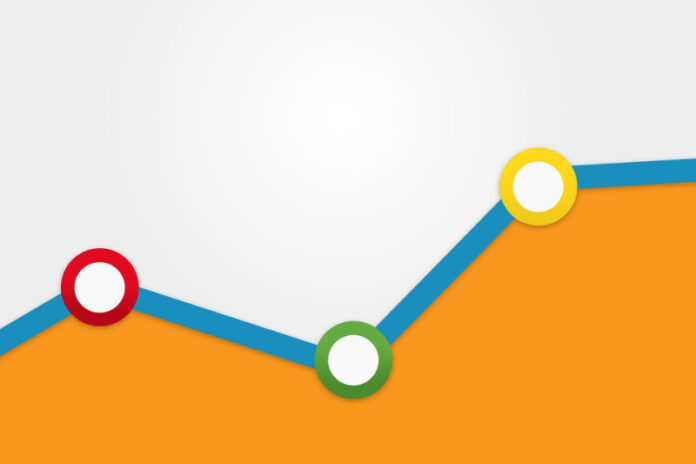Enterprises are increasingly realising that to fully reap the benefits of data, analytics should no longer be exclusively assigned to data scientists.
Hence, data democratisation has been a sweeping conversation across verticals. With all the tools and technologies readily available, how does one actually democratise data to maximise its benefits for the enterprise?
During the Tableau DataFest Asia Pacific 2022 conference, representatives from travel booking platform Traveloka and insurance firm QBE Insurance drilled down on how they approached data democratisation within their respective organisations.
“At Traveloka, we basically define data democratisation as having access to the right data by the right people at the right time, so all three components are important to us. We spend a lot of time ensuring that the data quality is accurate,” shared Umesh Ramakrishnan, Lead – Corporate Analytics & BI, Traveloka.
Starting off as a single-product company, Traveloka evolved into offering more than 20 products, and now operates in six countries. As a result, it has introduced an initiative called ‘personalised data production,’ in order to reduce data complexity.
“We want to be able to make decisions at a faster rate. There is no point in waiting for the data, asking for the data, and waiting for a week to make any kind of decisions. Most of our systems are designed in such a way that either the data is available (through orientation), or you will be updated on a daily basis. Then, the business stakeholders are able to look at the data and make decisions. This is how we define data democratisation within Tableau,” Ramakrishnan said.

Meanwhile, Sean Burns, Vice President of Data Science, QBE Insurance Asia, believes that data literacy is one skill everyone in the industry should possess.
Thus, he enumerated three strategies to achieve this:
“The first one was how to embed talent in the businesses, not in the data analytics organisation, but directly into business, to do business science and business intelligence type roles. This was very helpful because we were resource constrained, and we needed more people, so this enabled us to really expand the capabilities there. It reduced the need for translation, and we got much faster results,” he said.
“The second one was to support them with training, and this is what really enabled them to do this type of analytics. We ran monthly training on helping people get familiar with dashboards that we’ve reproduced, and we’ve created (sessions) on how to improve their skills in Tableau, or our Python. These were the capabilities that we made sure that folks were being trained,” Burns added.
“The third thing that we did was empower them to have the right tools. The tools today make it so much easier for non-programmers to code, (because) there’s really no code involved there. The ease of getting that code, having a very good data warehouse, an ecosystem with data that they can trust — really enables them to get the type of insights to help the business succeed,” the VP said.
Diving deeper
Five years ago, Traveloka realised it needed a simpler way of making data more accessible to its entire workforce.
To make this happen, it introduced a self-service analytics capability, to ensure that people have access to the data that they need at an instant.

“For example, if a marketing team wants to launch a campaign and wants to measure the performance of the campaign, they no longer have to come to the data team. We have put the processes and the tools in place, where they will be able to introduce a measurement within the campaign, and look at the results and analyse and optimise those campaigns. By doing that, we were able to reduce the time to make decisions,” Ramakrishnan explained.
“More importantly, what we were able to do is we were able to introduce (a higher) sense of ownership with our stakeholders. They no longer have to wait in a queue to make any kind of decisions, and their data team is no longer the blocker,” he added.
Over at QBE, the freedom to explore and experiment ways to extract value from data is not only allowed, but encouraged, Burns said.
“I remember when I was at a Tableau conference, and I was just getting introduced to Tableau. There was something I saw during the presentation with this edit button. I was like, ‘Wait a minute, I never noticed that before.’ (So) I went to our own dashboards and clicked on it. It really opened a bigger understanding of what made Tableau work and how simple and easy it was to use. I enjoyed it so much that it made me want to learn more of how to use Tableau, and it was so easy to learn. Watching a bunch of YouTube videos made it very easy to get started. And we have very good data, which was a big help,” he shared.
“Just to illustrate, in those types of examples and working out that curiosity that I try to demonstrate to my team members, that is, I think, what people need to do, because there’s so much technology out there, skills to pick up on, and what’s relevant to my business may be different from yours. You need to figure out what’s going to be that important to make you a game changer,” Burns continued.
The workforce of tomorrow
Moving forward, Ramakrishnan realised that a lot of emphasis has to be put on how people interpret the data, because there are multiple ways to view and understand it. Therefore, standardisation is urgently needed.
“We want to improve the quality of the data later. A lot of our programs are designed in such a way that any new joiner who comes into Tableau, can they understand the data ecosystem? Do they understand what these metrics mean to the company? What are the key metrics that we are focusing on and need to look at, for the right level of data? Once they have access to the data, how do they make decisions? So, a lot of our training programs are designed in such a way that people would be able to (go) through this journey of getting exposure to data to be able to make those decisions,” he said.
Meanwhile, Burns encouraged businesses to just go ahead and start their data journey as soon as they can.
“I like to use (the term) ‘Don’t ask for permission, ask for forgiveness.’ Just go. It’s a journey, bring people with you on a journey, and be comfortable with the turbulence that you encounter. You’ll have some things that may not go as expected, but you’ll learn fast, (and) you will benefit in the short term as well as in the long term,” he said.
“At the end of the day, it’s all about the people and processes that you put a lot of emphasis on. You put a lot of emphasis in training your people, getting the buy-in from them, and introducing a mindset of transformation. It’s only then (that) your projects would actually be successful,” Ramakrishnan concluded.
















